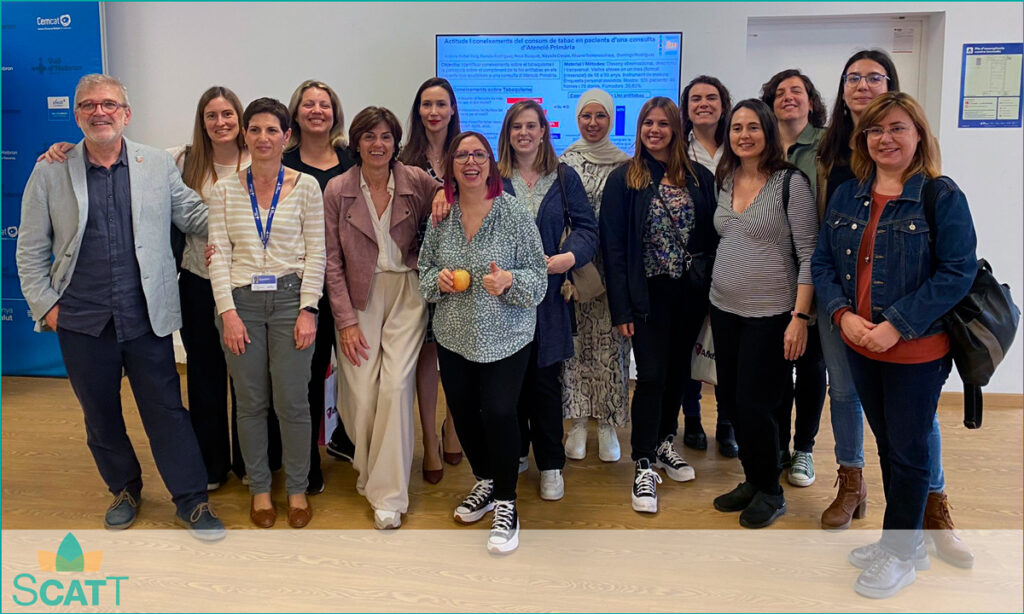The UCT team at the Jornada de la Societat Catalana de Tractament de Tabaquisme 2023
Once again, the Tobacco Control Unit actively participated in the Conference of the Catalan Society of Tobacco Treatment (SCATT), which took place on May 19 at the Hospital del Vall Hebron in Barcelona.
This significant event gathered renowned experts in the field of smoking cessation, emphasizing the importance of collaborative efforts across sectors. The conference included a comprehensive review of the latest strategies in tobacco cessation, with a particular focus on the integration of cytisine as a novel therapeutic target.
The Tobacco Control Unit made a noteworthy contribution to the conference for various reasons. Ms. Anna Riccobene, as a member of the SCATT and representing the Unit, played a pivotal role as part of the organizing committee. Her involvement further underscored the expertise and influence of the Unit in the field of tobacco control.
Moreover, the Unit presented four compelling research papers during the event. One of the highlights was a poster showcasing the collaborative development process of the DuCATA project’s web application, expertly crafted by PhD student Judith Saura. Another significant contribution was a poster evaluating the effectiveness of tobacco control strategies in outpatient mental health centers, prepared by PhD student Clara Mercader. Additionally, the Unit introduced the INSTrUCT project, an innovative open educational resource on tobacco cessation, spearheaded by Dr. Cristina Martinez. Lastly, PhD student Kenza Laurossy presented a thought-provoking scientific communication on tobacco consumption patterns among a cohort of students, presenting the ECTEC_S Study. Notably, Kenza Laroussy’s oral presentation received the prestigious award for the best communication in the SCATT 2023 conference.
The Tobacco Control Unit has had an outstanding participation in this day, the result of its dedication and excellence in the research and treatment of smoking. Through the works presented, its significant contribution to the advancement of knowledge and the approach to what remains the first cause of preventable mortality in our country and in the world has been highlighted.






No Comment